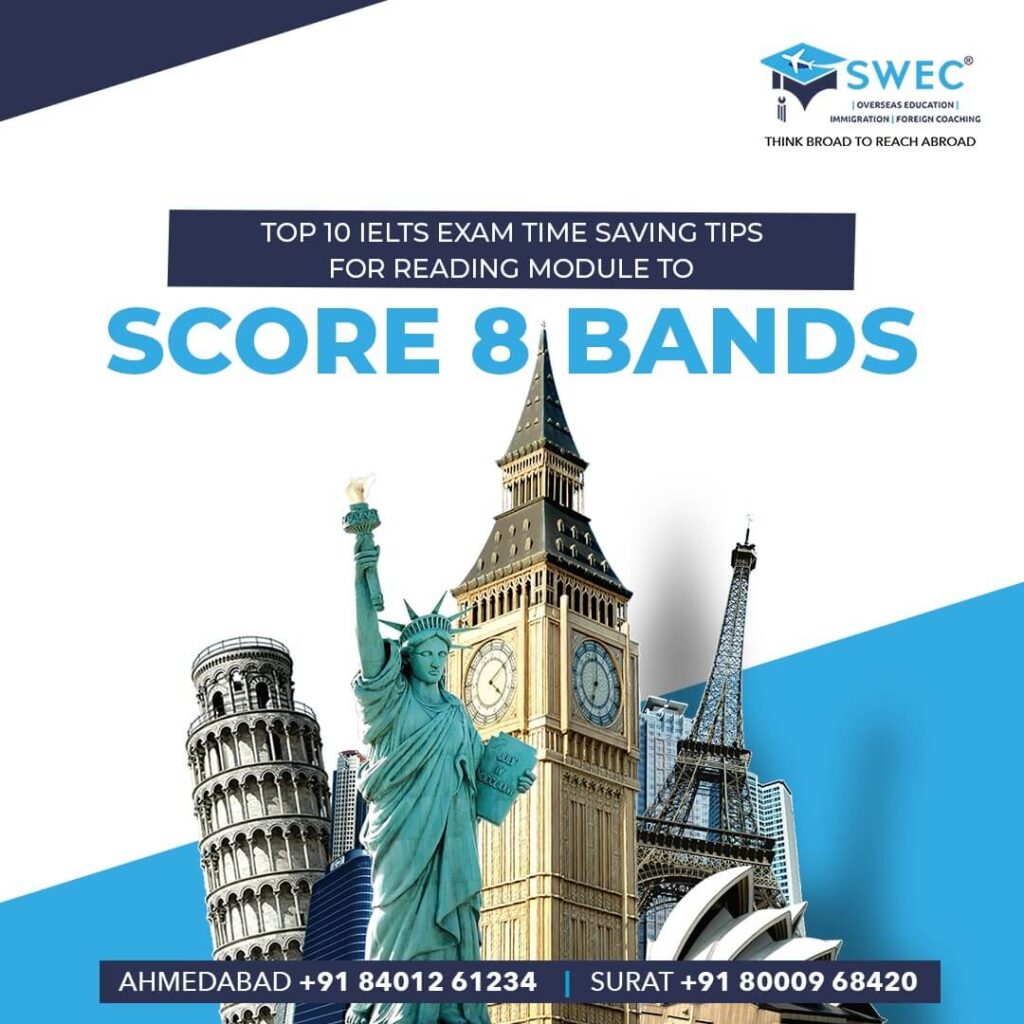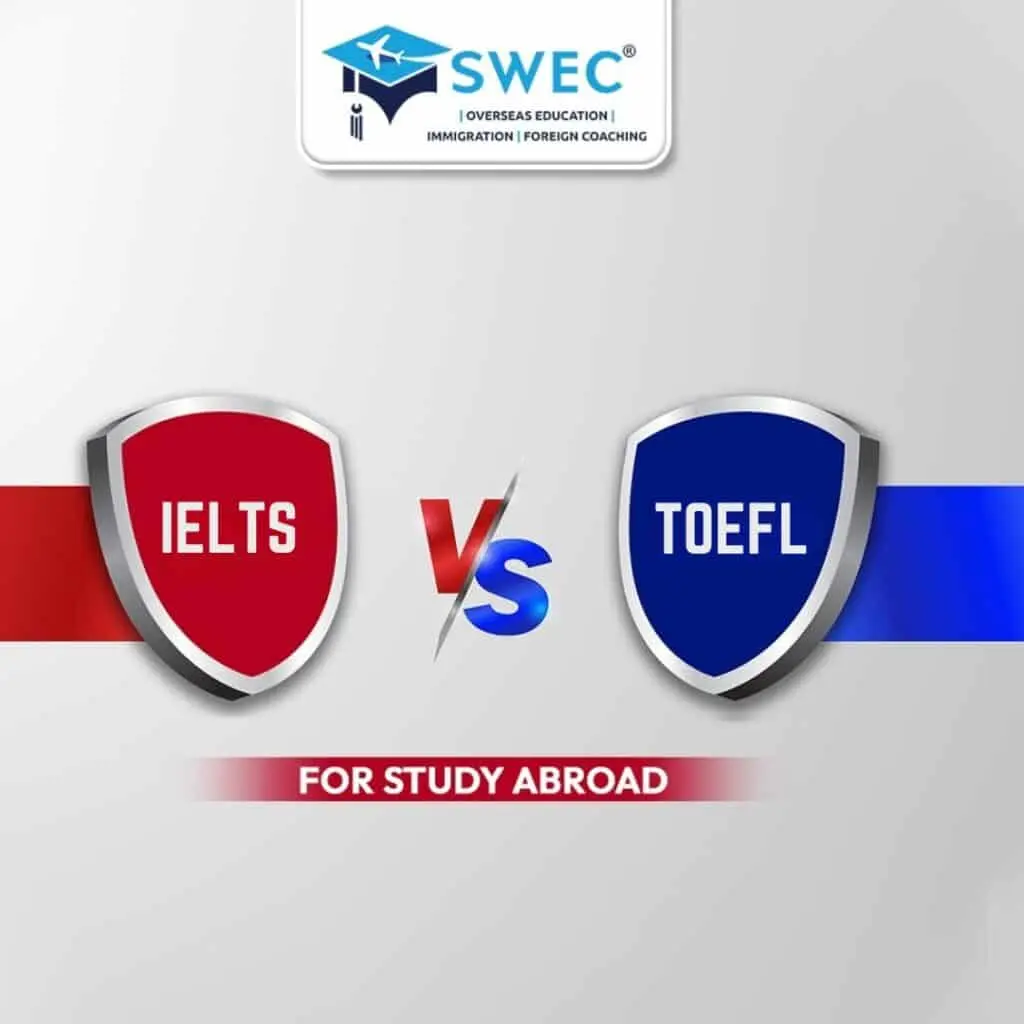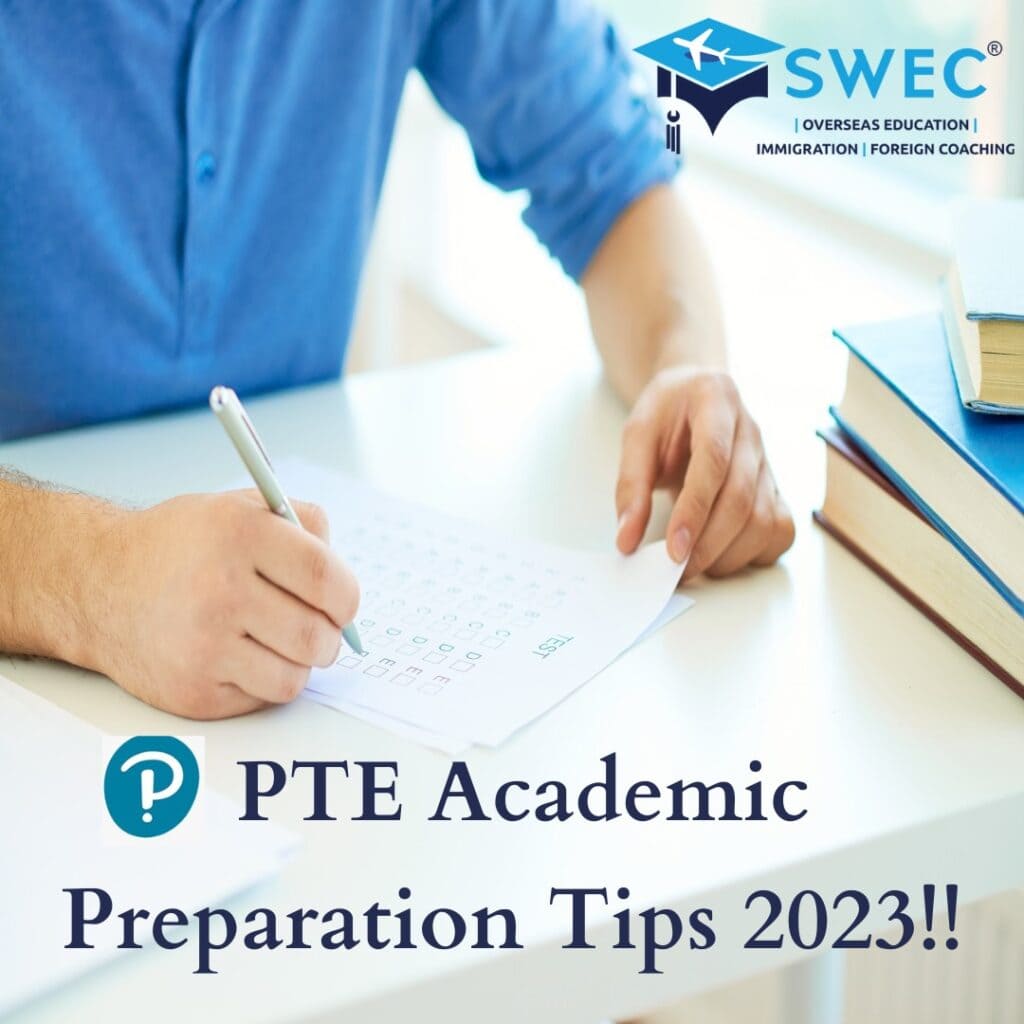
10 IELTS reading strategies are provided in this post to help you raise your score.
Both the academic and general IELTS reading sections run 60 minutes and assess your reading abilities. Each one has 40 questions. You have the entire 60 minutes to complete the answer sheet.
This lesson offers IELTS reading guidance and recommendations to assist you in passing the test.
Here are the most common types of reading questions you can get on your reading test:
- Sentence completion
- True false, not given
- Summary, note, table, flow-chart completion
- Multiple choice
- Short-answer questions
- Matching sentence endings
- Diagram label completion
- Matching information
- Matching headings
IELTS reading tips
To improve your IELTS reading score, keep in mind the following
IELTS Reading Tips #1. It\’s always paraphrased way.
The most crucial reading advice for the IELTS is this:
- It is always paraphrased, and the text will let you know if your response is accurate to a T. How does it function and what does it mean?
- It means that there is ALWAYS a paraphrased passage in the text that states EXACTLY the same thing for ANY right response that must be selected from the selections.
- The purpose of the IELTS reading test is to gauge your proficiency with complicated linguistic structures. It will test your capacity to decipher concepts that are the same (or similar) but expressed in various ways.
IELTS Reading Tips 2. Skimming
You won\’t be able to pass the IELTS test if you read in your typical leisurely, unhurried manner. Be able to scan and skim. These reading methods allow you to skim text quickly by using keywords and quick eye movements. Reading quickly to acquire a broad picture of the content is known as skimming.
Here is a summary:
- To understand the topic of the text, carefully read the opening paragraph.
- Pay close attention to the opening few sentences of each paragraph because they will reveal the text\’s core topic.
- Always pay close attention to the last paragraph because it usually contains the summary.
IELTS Reading Tips 3. Scanning
Rapid reading is called scanning, and it is done to locate specific data. Dates, names, figures, and unfamiliar phrases will frequently be part of the questions in the IELTS reading test.
When scanning, remember to:
Always strikethrough crucial details and numbers. You don\’t have to read the entire sentence. Keep an eye out for details such as names, dates, figures, statistics, etc. Determine the keyword from the question, and then search the text for it and any possible synonyms.
You\’ll find the solution more quickly if you do this. It\’s crucial to move quickly, concentrate, and be awake. You cannot permit yourself to move slowly and unhurriedly.
The passage for your test should only be skimmed in no more than three minutes.
IELTS Reading Tips #4. Prioritize the concepts over the words.
Reread it after which you should reword it. Explain what you just read to yourself. Your attention will be drawn to the concepts and message rather than the words in front of you thanks to this brief analysis. This is crucial since the solution you seek has undoubtedly also been rephrased.
IELTS Reading Tips #5. Put many exam tactics to the test, then pick the best one.
You can find a method to passing the reading test on every website, from tutors to previous students. Try these tactics, but monitor which one suits you the most.
Some students discover that the ideal approach is to read the questions first, followed by the text. Some pupils act in total opposition to this. Try both approaches on several practise exams; the approach that earns you the most points is the winner.
IELTS Reading Tips #6. Test out our reading exam approach.
Before focusing on the material, read the text. In this manner, only one piece of knowledge is retained in the brain.
It\’s possible that your brain will struggle to hold both the inquiry and the solution in mind at the same time. But if you skim the text part rapidly, discuss what you had just read in your head and THEN go to the question and its options, you should get the answer easier.
IELTS Reading Tips #7. Find evidence in the text and highlight and number it.
Locate the rephrased answer\’s exact location in the reading paragraph. You can be confident that it is the ONE if you compare it to the important terms in your response. That serves as proof. Then highlight the passage\’s line that was rephrased. Next, put the number above the query that is resolved by that line. Just like that. To minimise unfocused guessing throughout the reading test, you should do this. You can be positive that you made the right decision as a result of this. Yes, there is just ONE proper response in any situation. Contrary to popular belief, there are no alternatives.
The tests are created in this manner. That is the specific reason why a very definite location of the correct answer in the text. If this doesn’t help either just don’t panic. Move on to the next question, and later return to the confusing part.
IELTS Reading Tips #8. Don\’t get alarmed by unfamiliar words.
Apply context. Make an effort to explore the new word. You might be able to infer from the sentence\’s content whether it refers to a person or a job, an animal or a characteristic, or anything pleasant or unfavourable.
Prefixes can be useful; for example, un- signifies to cancel an activity, re- means to repeat it, or -wise means to refer to it. Grammar will also be helpful since, if it comes before a noun, it may be describing what this noun is like. For your reading test, keep in mind that you should prepare by learning more words and improving your comprehension of prefixes and suffixes.
Simply don\’t panic if neither of these solutions works. Answer the subsequent question first, then go back to the initially puzzling section.
IELTS Reading Tips #9. Don\’t fail to respond to any inquiries
Never fail to respond to any box. When there is no more time, just make an educated guess and write something.
Why? For erroneous responses, there won\’t be any consequences. You will receive no points if you leave the cell on your answer sheet empty. Of course.
But what if you\’re fortunate and correctly estimate it! You will have at least one additional point that could move your reading exam band from 6.5 to 7.0. Because of this, you ought to make an educated guess.
IELTS Reading Tips #10. Quicken your reading pace
You must increase your reading speed in your exam preparation in order to maximise the 60 minutes you have to complete the IELTS reading exam.
Here, is a brief guide to improving your reading speed.
1 – Increase your reading gaze to include three words at a time, rather than bouncing from one word to the next. Catch three at a time and aim to expand it to about five words in each glance.
2 – Use a pointer to increase speed. The pointer will land between every three words. Moving it quicker through the text you will progress faster.
3 – Make sure not to sacrifice comprehension for speed. It’s very easy to speed read through an article and then recall nothing. Avoid this by using your new speed reading skills in online reading comprehension tests
The best guide who can help you with this question is your UK Student visa consultant. Irrespective of whether you are looking for a dependent visa, student visa, visitor visa, or any other services like Online IELTS coaching, a best UK visa consultant can give you proper information based on experience. You can discuss with them the country for which you are looking to get a visa. In case you are based in Ahmedabad or Surat, search online using Top UK visa consultant in Ahmedabad, or Top UK visa consultant in Surat, respectively. This will help you get suggestions for visa consultancy services in these localities.
For Further Queries please reach us at info@swecvisaconsultant.com or Call us on +91-8401261234 OR +9189800 50831




